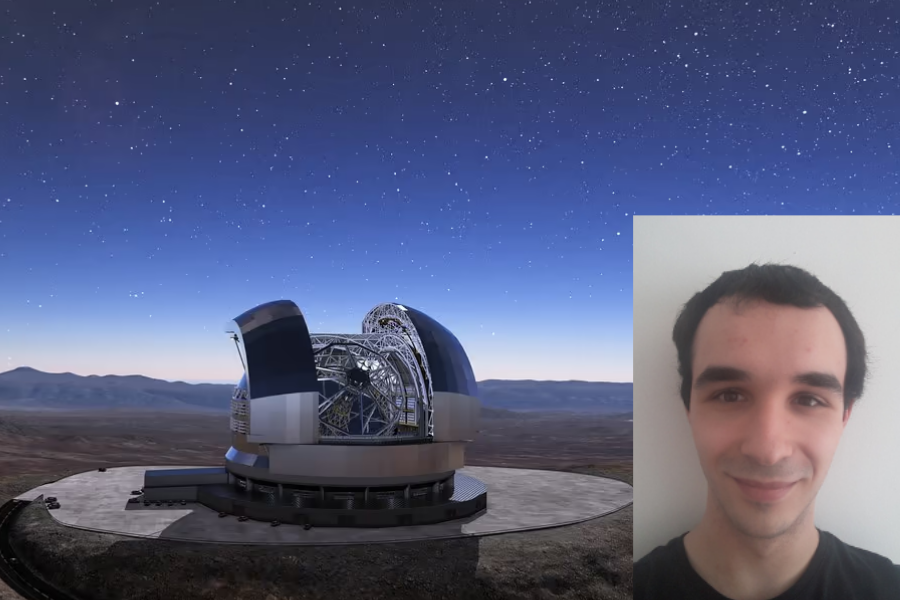André Beaudoin, iREx master’s student, completed his studies at the University of Montreal in 2023. He summarizes his research project here.
Are we alone in the universe? is perhaps the most fundamental question in modern astrophysics. But how do you answer it? And what astronomical tools are needed to find that answer?
The most promising avenue for finding a solution is to search for biosignatures, that is, the chemical elements or molecules that cannot exist—or coexist—without the presence of life on an exoplanet. The classic biosignature is a pair of oxygen and methane molecules. This pair has only been observed on Earth, and it seems impossible to maintain a large concentration of the two molecules simultaneously on a planet without life present to replenish them. The discovery of these two particles on an exoplanet the size of Earth would be a huge breakthrough in the search for life elsewhere in the universe. This brings us to the second question. What kind of astronomical instrument would it take to detect these particles?
Today’s modern instruments, such as the James Webb Space Telescope, can detect the presence of certain chemical elements on some exoplanets, but it is still difficult to study Earth-sized exoplanets with these instruments. Moreover, the discovery of dioxygen remains elusive, due to difficulties specifically related to its discovery. The next generation of telescopes, giant telescopes, will push the boundaries of what’s possible. The largest telescope of this generation isA very large telescope (ELT), a main mirror with a diameter of 39 meters, making it the largest optical telescope ever built. It is currently under construction in Chile and is scheduled to enter service in 2028.

An artistic representation of the Very Large Telescope, currently being built in Chile. Credit: ESO L. Calacadas.
My master’s project consisted of evaluating the performance of ELT, specifically the performance of one of its instruments, ANDES, for detecting chemical elements in the atmospheres of terrestrial exoplanets. So I built a simulator that digitally reproduces the instrument very accurately, including all modules and as many sources of error as possible. Thanks to this simulation, it was possible to assess the conditions under which and on which exoplanets it would be possible to detect the chemical elements of interest to us. In short, in its current design, the instrument would be able to detect water on many terrestrial exoplanets, but would have great difficulty detecting other chemical molecules of interest.
more information
Andre pursued a master’s degree at the University of Montreal between 2021 and 2023, under the direction of iREx Director, Rene Doyon. His notes will be available soon.
Related

“Hardcore beer fanatic. Falls down a lot. Professional coffee fan. Music ninja.”







More Stories
Psychologically: When our body is lost in space…
Colorful striped candles to light up your home decor
Nokia and NASA are preparing to launch a 4G network on the moon